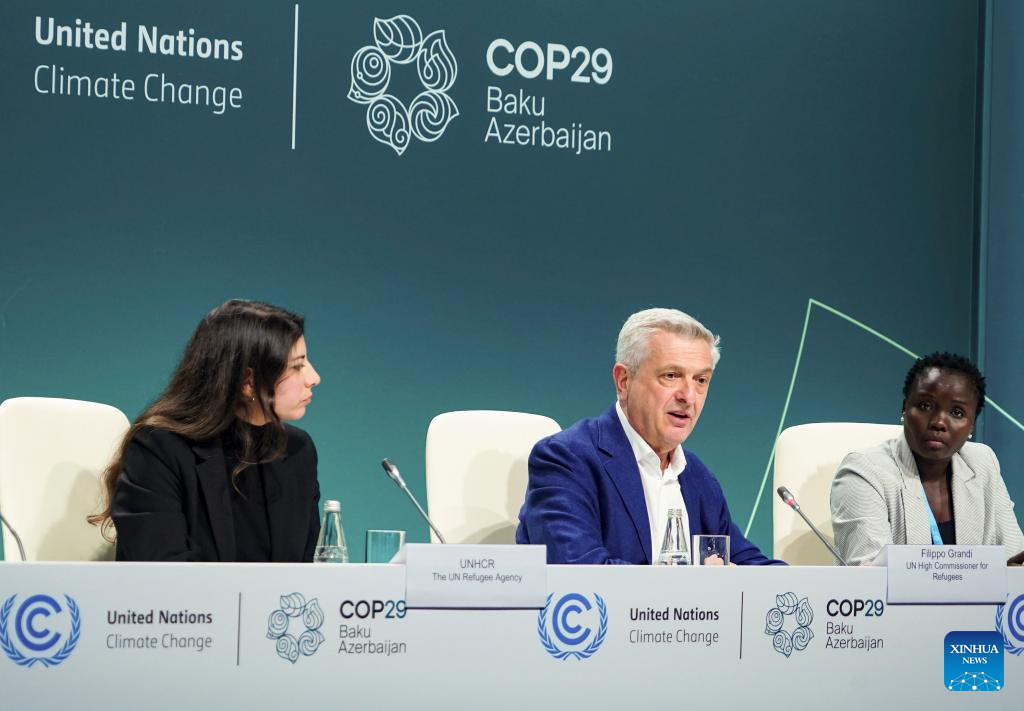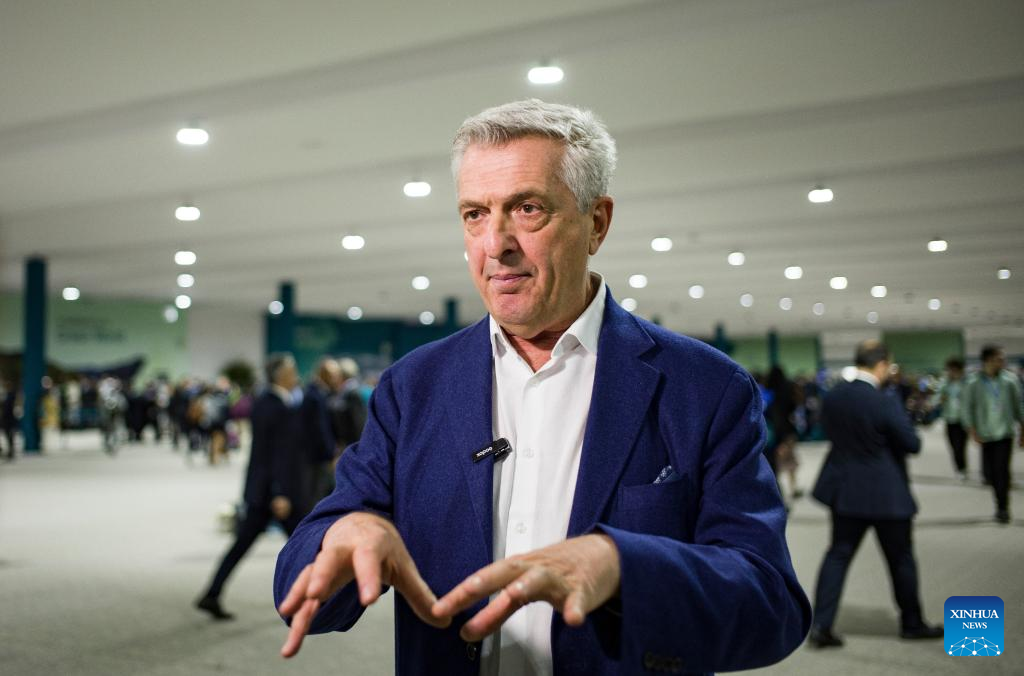
UN High Commissioner for Refugees Filippo Grandi (C) attends a press conference in Baku, Azerbaijan, Nov. 12, 2024. People forcibly displaced are increasingly finding themselves on the front line of the global climate crisis, according to a report released Tuesday. (Xinhua/Meng Jing)
BAKU, Nov. 12 (Xinhua) -- People forcibly displaced are increasingly finding themselves on the front line of the global climate crisis, according to a report released Tuesday.
The report, published during the 29th session of the Conference of the Parties to the United Nations Framework Convention on Climate Change (COP29), showed how climate shocks are interacting with conflict, which further affects the displaced population.
Of the more than 120 million forcibly displaced worldwide, three-quarters live in countries heavily impacted by climate change, and half are in places affected by both conflict and serious climate hazards, according to the report, which was released by the UN Refugee Agency in collaboration with 13 expert organizations, research institutions and refugee-led groups.
By 2040, the number of countries facing extreme climate-related hazards is expected to rise from 3 to 65, the vast majority of which host displaced people, the report said.
"The intersection between displacement and climate change is very real," said UN High Commissioner for Refugees Filippo Grandi in an interview with Xinhua. He added that climate actions need to be taken into account in traditional humanitarian responses to displacement.
Grandi noted that current climate action is insufficient and that more resources should be devoted to poor countries that are the most affected for increasing climate justice. ■

UN High Commissioner for Refugees Filippo Grandi takes an interview with Xinhua in Baku, Azerbaijan, Nov. 12, 2024. People forcibly displaced are increasingly finding themselves on the front line of the global climate crisis, according to a report released Tuesday. (Xinhua/Meng Jing)



